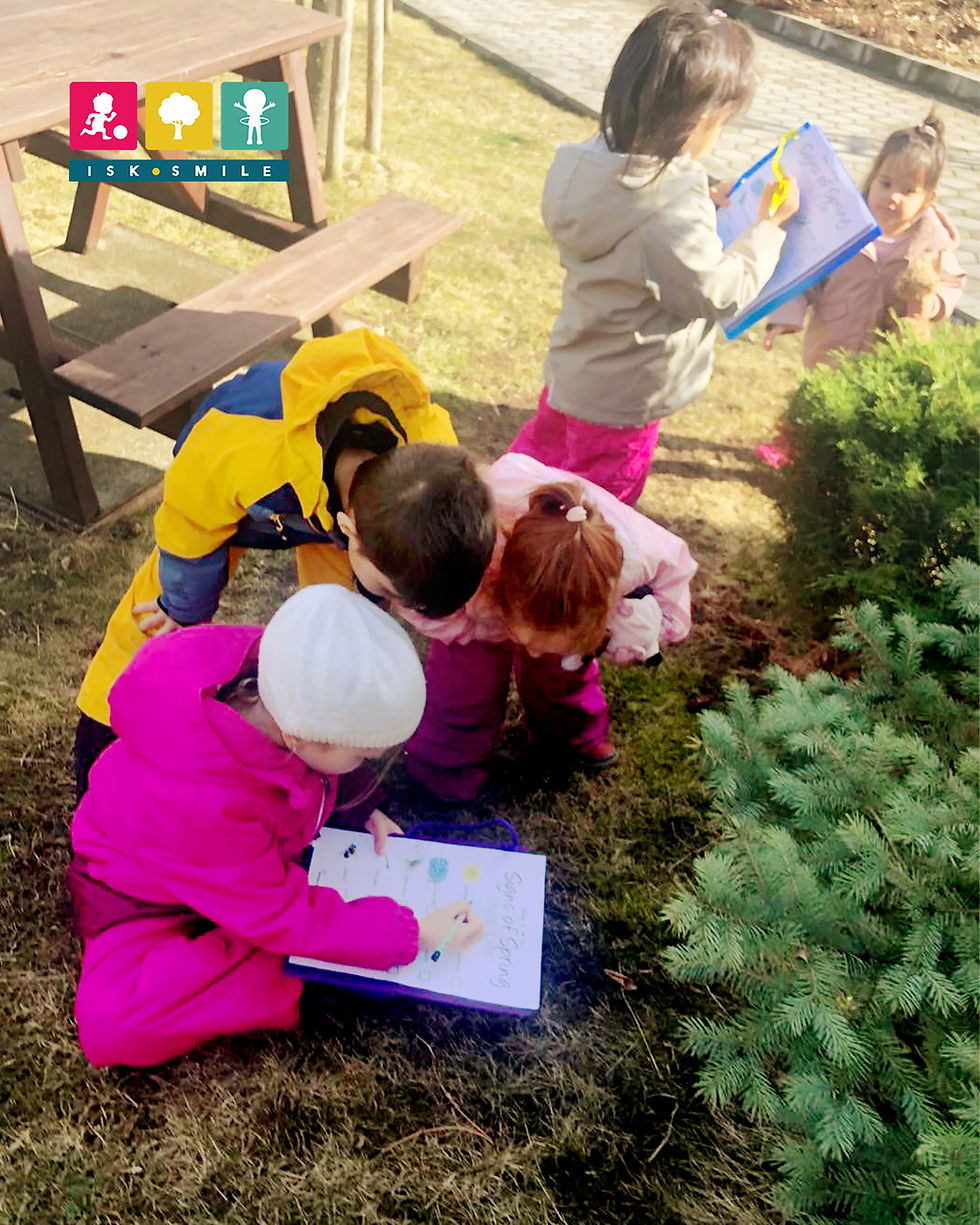The Crucial Role of Play in Early Childhood Development
- Elina Cherkezova-Veleva
- Jan 9, 2024
- 3 min read

The sight of children engaged in play is not merely a charming spectacle but a fundamental aspect of their growth and development. Play is the cornerstone of early childhood development, contributing significantly to cognitive, social, and emotional well-being. In this article, we will delve into the importance of play in fostering a holistic developmental foundation for young children.
Cognitive Development through Play
Play acts as a powerful catalyst for cognitive growth in young minds. From building blocks to imaginative games, every play activity stimulates different areas of the brain, enhancing cognitive functions. Here are some ways in which play contributes to cognitive development:
Problem-Solving Skills: Play often involves overcoming challenges, whether it's figuring out how to construct a tower with blocks or navigating through an imaginary adventure. These activities help children develop problem-solving skills, encouraging them to think critically and find creative solutions.
Imagination and Creativity: Pretend play, role-playing, and imaginative games allow children to explore and expand their creativity. These activities provide an outlet for self-expression, helping children develop a rich inner world and fostering the ability to think outside the box.
Language Development: Play encourages communication skills, language acquisition, and vocabulary building. Whether negotiating with peers during a game or narrating a storyline during pretend play, children are constantly refining their language abilities through playful interactions.
Mathematical Concepts: Simple activities like counting toys, sorting shapes, or dividing snacks during playtime introduce basic mathematical concepts in an engaging and enjoyable manner. This informal exposure lays the groundwork for more formal learning in later years.
Fine and Gross Motor Skills: Play involves various physical activities, promoting the development of both fine and gross motor skills. From manipulating small objects to running, jumping, and climbing, these movements are integral to refining coordination and spatial awareness.
Social Development through Play
Beyond cognitive benefits, play plays a pivotal role in shaping a child's social skills. Interactions with peers, sharing, cooperation, and conflict resolution all contribute to the development of robust social capabilities. Here's how play fosters social development:
Teamwork and Cooperation: Many play activities involve collaboration, whether it's building a structure together or participating in group games. Through such experiences, children learn the value of teamwork, cooperation, and shared goals.
Empathy and Emotional Understanding: Role-playing and pretend play enable children to step into different roles and perspectives, fostering empathy and emotional understanding. This imaginative exploration helps them relate to others' feelings and experiences.
Communication Skills: Play is a natural arena for honing communication skills. Children learn to express their thoughts and feelings, listen to others, and adjust their communication style based on the context of the play scenario.
Negotiation and Conflict Resolution: Play often involves negotiation, compromise, and the resolution of conflicts. These experiences teach children important life skills, such as how to navigate disagreements, find common ground, and arrive at fair solutions.
Building Friendships: Play provides opportunities for children to form friendships. Shared experiences and mutual enjoyment during playtime create bonds that contribute to the development of meaningful relationships.
Emotional Development through Play
Emotional well-being is a crucial aspect of a child's overall development, and play serves as a valuable tool for emotional expression, regulation, and understanding. Here's how play contributes to emotional development:
Self-Expression: Play provides a non-verbal outlet for children to express their emotions. Whether they are happy, sad, excited, or frustrated, play allows them to communicate their feelings in a safe and creative way.
Stress Relief: Just as play can be an emotional outlet, it also serves as a means of stress relief for children. Engaging in enjoyable and imaginative activities helps alleviate tension and promotes a sense of well-being.
Building Resilience: Play often involves taking risks, facing challenges, and experiencing setbacks. These experiences, while framed within the context of play, contribute to the development of resilience and the ability to bounce back from difficulties.
Self-Regulation: Play helps children learn to manage their emotions and impulses. Whether waiting their turn during a game or controlling the excitement of a pretend adventure, children develop self-regulation skills through play.
Confidence Building: Successes in play, whether it's completing a puzzle or mastering a new game, contribute to a child's sense of accomplishment and self-esteem. These positive experiences form the foundation for confidence in other aspects of life.
In conclusion, play is not merely a pastime for young children but a crucial vehicle for their overall development. From enhancing cognitive abilities and social skills to promoting emotional well-being, play is a multifaceted tool that lays the groundwork for a child's future success. As caregivers, educators, and society at large, recognizing and nurturing the importance of play in early childhood is key to supporting the growth and flourishing of the next generation. So, let the children play, for in those moments of joy and imagination, the foundation for a lifetime of learning and well-being is being laid.





Comments